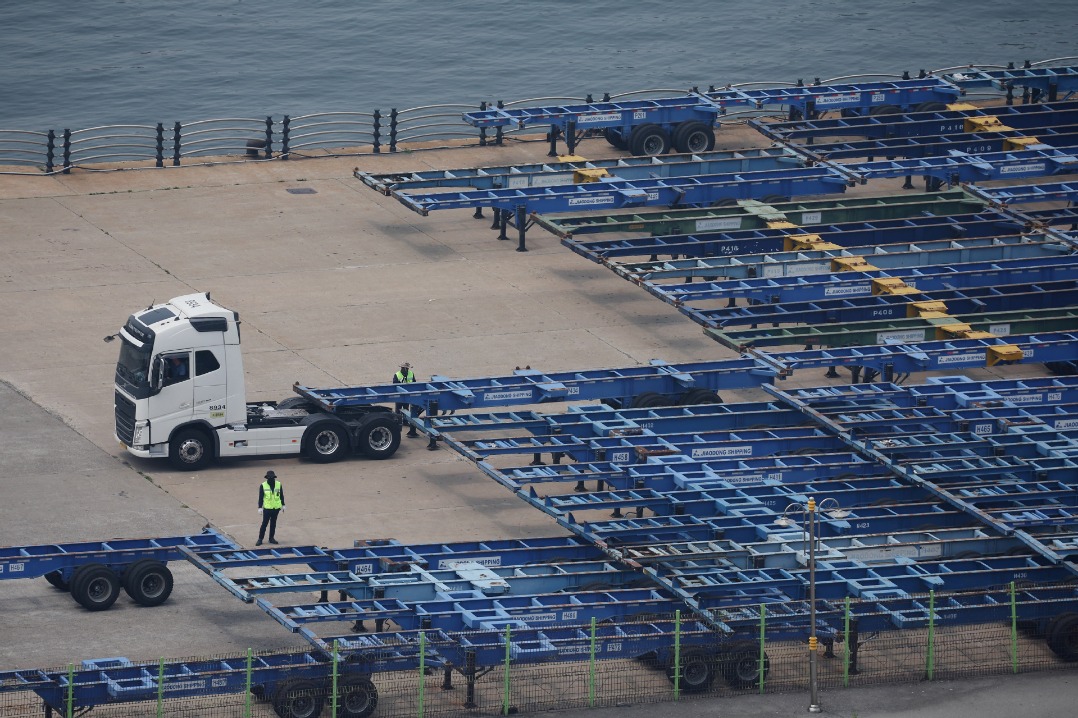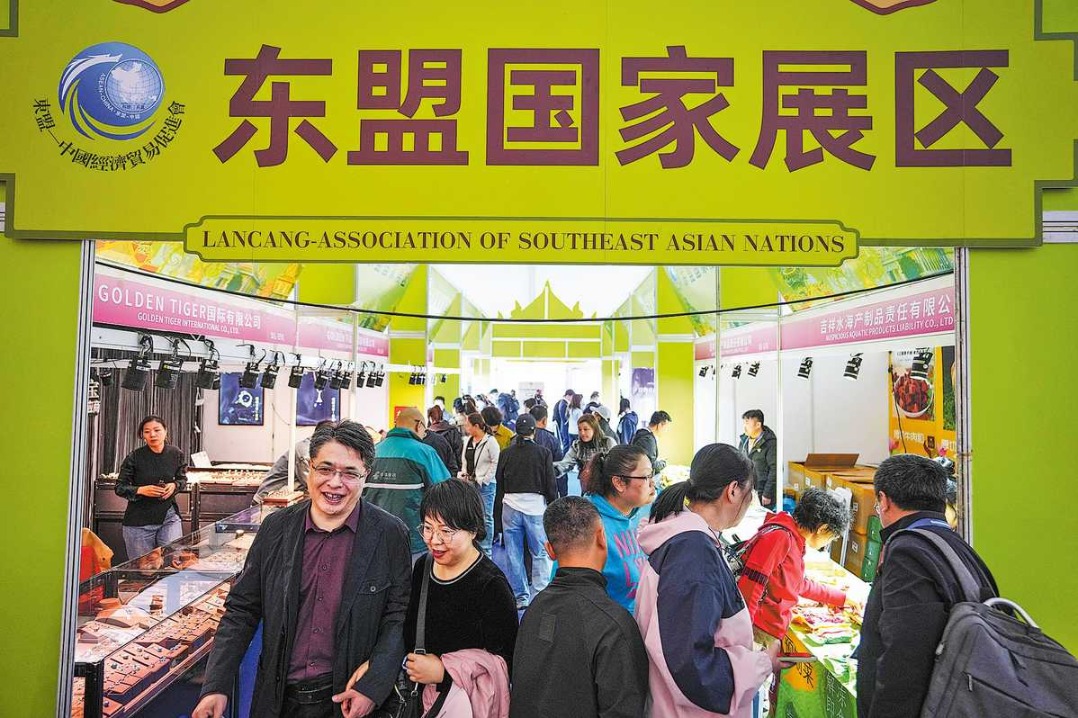Trump's trade policy is too focused on deficits: experts

US President Donald Trump's trade policy was a failure his first year in office, according to a group of experts.
Jeffrey Schott, a senior fellow at the Peterson Institute for International Economics, described Trump's trade policy in Asia in the first year as "disaster".
"It has been a disaster for the United States of America," he said at a talk in Washington on Wednesday, adding that pulling the US out of the Trans-Pacific Partnership (TPP) is a cornerstone of the failure.
The 11 nations that pursued the new TPP after the US withdrawal will sign their agreement on March 8 in Chile.
Chilean President Michelle Bachelet expressed this week that if the US wants to rejoin, it would have to do so under the TPP-11 terms. Her words came after Trump's recent suggestion that the US could rejoin TPP "if we were able to make a substantially better deal".
Eswar Prasad, a senior fellow at the Brookings Institution, summed up Trump's trade policy in Asia as characterized by "uncertainty" and "open hostility to the multilateralism trading arrangements" that he said the US was largely responsible for putting in place over the past decades.
Trump has demanded renegotiations of trade deals such as the North American Free Trade Agreement (NAFTA) and the US-Korea Free Trade Agreement (KORUS).
These, along with pulling out of TPP, make the US an unreliable and untrustworthy trade partner in the region, according to Prasad.
Meredith Miller, senior vice-president at the consulting firm Albright Stonebridge Group, expressed that countries in Southeast Asian nations are worried about the "America First" message Trump delivered at the APEC summit in Vietnam last November.
ASEAN countries also are concerned about US trade remedies and a possible trade war between China and the US because "ASEAN countries are very integrated in the region's supply chains, with both China and the US", she said.
The Trump administration, under Section 232 of the US Trade Expansion Act of 1962, is reportedly considering imposing steep tariffs on steel and aluminum imports of 24 percent and 10 percent, respectively.
Such a move is likely to trigger retaliation from US trade partners as well as substantially increase costs on a large part of the US economy that depends on the raw materials.
Shujiro Urata, a professor at Japan's Waseda University, agreed with the criticism on the uncertainty and rejection of multilateralism of Trump's trade policy.
He also expressed doubt over Trump's obsession with the bilateral trade imbalance, saying that the US has introduced many unilateral policies to correct Japan's trade surplus with the US, but the imbalance remains after many years.
Urata said that it is not the "trade policy" but "macroeconomic policy" that should be used to deal with the imbalance.
Schott of the Peterson Institute described Trump's obsession with trade deficits as a demonstration to his core supporters that he is doing something. "All of the measures he is taking are not going to make a big difference in the bilateral trade deficit with China," Schott said.
Most economists believe the US trade deficit is caused by its own macroeconomic policy, low savings rate and the role of the US dollar as a global reserve currency.
Schott expressed that if the US pursues Section 232 or Section 301 consistent with WTO principles, the reactions will be moderate.
"If they are inconsistent, I think it will open the doorway for broad tit-for-tat retaliation," he said. The US initiated a Section 301 investigation into China's intellectual property policy and practice last August.
He said the US has long advocated other countries to pursue domestic reform to improve productivity and global competitiveness. "Now it's the US that needs to work on its international competitiveness," he said.


































